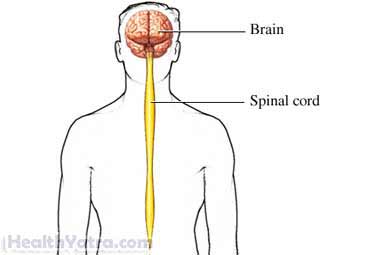Definition
Motion sickness is characterized by the symptoms of nausea and vomiting. Nausea and vomiting can be caused by motion itself or simply from feeling the sensation of motion, as when watching a movie or playing a video game.
Causes
Balance and equilibrium are maintained by an interaction among the inner ears, the eyes, pressure receptors on the skin, and motion receptors in the muscles and joints.
Motion sickness results when conflicting messages regarding spatial orientation and motion of the body are sent to the central nervous system. For example, reading a book while riding in a car may cause your eyes to send different messages than your inner ears do regarding motion.

Risk Factors
Motion sickness is more common in women and children. Other factors that increase your chances of getting motion sickness include:
- Family members who get motion sickness
- A long or rough car, boat, plane, or train ride
- Amusement park rides
- Migraine headaches
Symptoms
The most common symptoms include:
- Dizziness
- Upset stomach
- Nausea or vomiting
Other symptoms include:
- Tiredness or sleepiness
- Sweating
- Cold, clammy feeling
- Feeling faint
- Headache
- Loss of color, especially in the face
Diagnosis
Your doctor will ask about your symptoms and medical history. A physical exam will be done.
Treatment
Symptoms of motion sickness usually go away soon after the motion stops. But, for some people, the symptoms can last a day or more. The main treatment for motion sickness is rest.
To help control vomiting, medicines may be given rectally or through an IV. If motion sickness lasts a long time, fluids may be given in order to prevent dehydration.
Prevention
Strategies to prevent motion sickness include:
Medications
Medication that prevent motion sickness should be taken as directed before you begin a trip or ride. These medicines can cause side effects, such as drowsiness, lack of alertness, or trouble concentrating.
Medications include:
- Over-the-counter antihistamines
- Prescription scopolamine
- Prochlorperazine, promethazine, or chlorpromazine
Repeated Exposure
Repeated exposure to the motion that causes the sickness can decrease your symptoms. This treatment can take time and may be unpleasant.
Alternative Remedies
Commonly used alternative remedies include:
- Pressure patch worn on the wrist to put pressure on certain points
- Ginger
Lifestyle Changes
There are steps that you can take to be more prepared:
Before you go:
- Avoid heavy meals or spicy foods
- Avoid excess alcohol
- Get plenty of sleep
For cars:
- Try to sit in the front seat or volunteer to drive
- Don’t reading while in motion
- Eat small, frequent meals or snacks
- Avoid excess alcohol
- Don’t look at moving objects
- Ask the driver to slow down or stop if you start to feel sick
For planes, trains, or boats:
- Get a window seat and look outside
- Sit over the wing on a plane
- Sit in the middle of a boat and try to get some fresh air
Try to avoid amusement parks, virtual reality rides, and movies that may lead to motion sickness.
